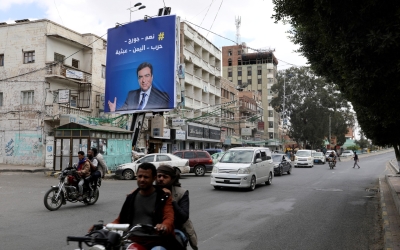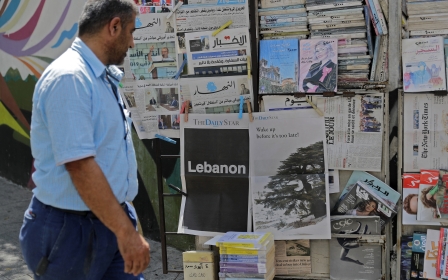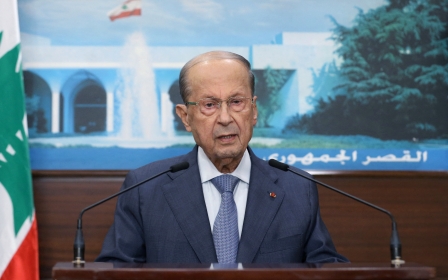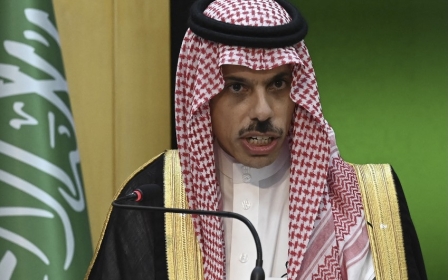Bahrain tells citizens to leave Lebanon as Gulf spat continues

Bahrain has ordered its citizens in Lebanon to leave the country immediately as a spat with the Gulf states continues to rumble on.
The Bahraini foreign ministry "urged all citizens in Lebanon to leave immediately, following the tense situation there, which calls for extra caution", it said in a statement carried by the official Bahrain News Agency.
The call came a day after the United Arab Emirates also urged its citizens to leave Lebanon.
Lebanese Information Minister George Kordahi triggered the row with an interview recorded in August and aired last week.
In the interview, recorded before he assumed his current role, Kordahi said that Yemen's Houthi rebels were "defending themselves" and described the years-long war in the country as "futile".
New MEE newsletter: Jerusalem Dispatch
Sign up to get the latest insights and analysis on Israel-Palestine, alongside Turkey Unpacked and other MEE newsletters
Despite conciliatory statements from the Lebanese government, Saudi Arabia has called on the fragile coalition cabinet in Beirut to dismiss Kordahi.
A Saudi-led military coalition that has included the UAE and Bahrain intervened to prop up the Yemeni government in 2015, after Houthi rebels seized the capital Sanaa in 2014.
Saudi Arabia on Friday gave Lebanon's ambassador 48 hours to leave the country, recalled its envoy from Beirut and suspended all imports from Lebanon.
Bahrain and Kuwait quickly followed suit with similar measures, and the UAE on Saturday recalled its diplomats from Beirut in "solidarity" with Riyadh.
The Saudi foreign ministry said its moves were taken after the "insulting" remarks on the Yemen war, but also due to the influence of Lebanon's Iran-backed Shia movement Hezbollah.
Saudi Arabia, which suspended all imports from Lebanon, has said dealing with Beirut was "pointless" due to Hezbollah's dominance.
In an interview with CNBC on Sunday, Saudi Foreign Minister Faisal bin Farhan al-Saud denied that the spat amounted to a diplomatic crisis, but said that Riyadh had decided that maintaining ties with Lebanon was neither "productive", "useful", nor in the Gulf's kingdom's interests.
"I think we have come to the conclusion that dealing with Lebanon and its current government is not productive and not helpful with Hezbollah's continuing dominance of the political scene, and with what we perceive as a continuing reluctance by this government and Lebanese political leaders in general to enact the necessary reforms, the necessary actions to push Lebanon in the direction of real change," bin Farhan told the US news channel.
Meanwhile, Kordahi has said that resigning was "out of the question".
Lebanon on Monday called for talks with Saudi Arabia to ease the row, which is a fresh blow amid its deep economic crisis and while Beirut's fragile government is struggling to secure aid, including from wealthy Arab countries.
Middle East Eye delivers independent and unrivalled coverage and analysis of the Middle East, North Africa and beyond. To learn more about republishing this content and the associated fees, please fill out this form. More about MEE can be found here.





